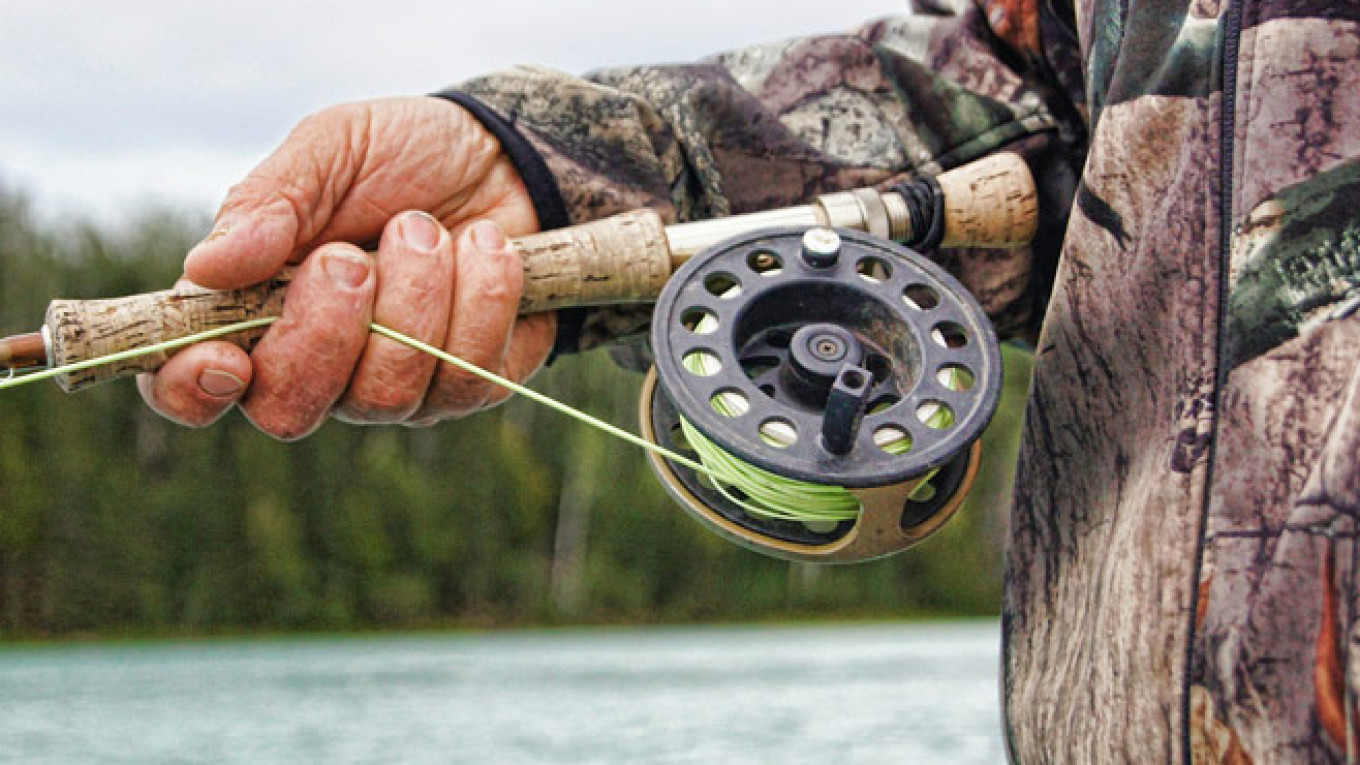After years of fierce debate, Russian President Vladimir Putin last week banned the ecologically destructive practice of drift net fishing in the area off Russia's eastern coast.
Environmentalists have warmly embraced the decision as a step toward rescuing Russia's Pacific salmon population and improving the country's shaky environmental record.
However, the law — which goes into force on Jan. 1 next year — is facing criticism from other corners for its potential economic and political fallout.
Economists say the law is unlikely to provide the economic boost that the government has promised, while political analysts fear it could worsen Russia's relations with Japan, whose vessels have performed drift net fishing in that area for decades.
"The Japanese are very concerned about the ban," Alexander Fomin, president of the All-Russian Association of Fish Breeders, Entrepreneurs and Exporters, told The Moscow Times
Environmental Blessing
Environmentalists had urged the government to ban or curb use of the "walls of death" — as they refer to drift nets — for years, but made little headway until the bill suddenly raced through Russia's two houses of parliament last month.
A fishing technique that employs multi-kilometer-long nets dragged behind large fishing vessels, drift fishing is primarily used to catch the valuable red or sockeye salmon species.
It is known for claiming accidental victims, such as dolphins, seabirds and turtles, and for depleting fish stocks by not allowing any fish of a species to return home to rivers and streams to spawn.
In Russia, drift fishers claim that up to 90 percent of their catch is sockeye salmon. But this is technically impossible, as the region's predominate breed is pink salmon, said Konstantin Zgurovsky, head of a program on sustainable fishing at the Russian branch of global conservation campaigner WWF.
"This means that the most valuable fish — sockeye salmon — is taken from the catch, and the rest is simply thrown overboard," Zgurovsky said.
Drift fishing is now frowned upon internationally: The United Nations adopted a resolution urging all countries to ban the practice in 1991.
Nonetheless, drift fishing is still widely employed in Russia's exclusive economic zone, the 200-mile swath of the Pacific to which Russia has special commercial rights under UN law.
There are currently 16 Russian and 35 Japanese vessels fishing with drift nets in Russia's Far East, with a combined catch of about 17,000 tons of salmon a year, Russian media reported last month.
Environmentalists say that the practice has wreaked ecological havoc on the region. According to data from the WWF, Russian and Japanese drifters killed more than 1.2 million sea birds in the zone from 1993 to 1998 and over 15,000 sea animals between 1993 and 1999.
No recent data is available due to a lack of monitoring, according to the WWF.
No Economic Benefit
The bill's authors have claimed that, along with its ecological benefits, the law will support fishers in Russia's Far East who are now losing out in the competition with drift net fishers.
Valentina Matviyenko, the head of Russia's upper house of parliament and one of the bill's authors, said earlier this year that drift net fishing had cut coastal fishermen's catch from 504,000 tons in 2011 to 330,000 last year, the RIA Novosti news agency reported.
The authors, all but one of whom are from the ruling United Russia party, have claimed that the measure will create about 4,000 new jobs and bring more than 500 million rubles ($9 million) to the federal and regional budgets, RIA Novosti reported.
However, experts polled by The Moscow Times found the law's economic outlook less than promising.
The law may even cost the budget a substantial sum, according to Sergei Sinyakov, head of the laboratory for statistics and economics at the Russian Federal Research Institute of Fisheries and Oceanography.
"With the adoption of the law, the budget will lose 165 million rubles ($3 million) a year," he said, explaining that drift net fishers pay 2 1/2 times more in taxes than coastal fishermen in Russia's far eastern Kamchatka region.
The 500 people now employed by drift net fishers will lose their jobs, Sinyakov said, adding that he highly doubts new jobs will replace them.
Anger in Japan
Political analysts also worry that the move will damage Russia's relations with Japan, whose officials have spoken out repeatedly against the ban.
Japanese Chief Cabinet Secretary Yoshihide Suga said at a press conference last week that the law "gives rise to the utmost regret," RIA Novosti reported.
Japanese-Russian relations have been tense since Japan last year followed the U.S. and EU in imposing sanctions on Russia over its role in the Ukraine crisis.
Federation Council head Matviyenko said previously that the ban was not directed against Japan, but Japanese analysts are less than convinced, according to Valery Kirsanov, director of the Russian Academy of Sciences' Center for Japanese Studies.
"President Vladimir Putin's approval of the law will definitely be greeted negatively by Japan and will be seen as a direct response by Russia to Japan's sanctions," Kirsanov said, speaking before Putin signed the law last week.
The ban is viewed in Japan as an economic threat, particular to the northernmost Japanese island of Hokkaido, whose economy depends heavily on driftnet fishing.
Fishing issues have always been a central point in relations between Russia and Japan, said Natalya Stapran, associate professor at the Moscow State Institute of International Relations' Department of Oriental Studies.
Japan estimates that its losses from the ban will exceed $200 million, Japan's Foreign Ministry told the TASS news agency days before Putin signed the bill.
Contact the author at bizreporter@imedia.ru
A Message from The Moscow Times:
Dear readers,
We are facing unprecedented challenges. Russia's Prosecutor General's Office has designated The Moscow Times as an "undesirable" organization, criminalizing our work and putting our staff at risk of prosecution. This follows our earlier unjust labeling as a "foreign agent."
These actions are direct attempts to silence independent journalism in Russia. The authorities claim our work "discredits the decisions of the Russian leadership." We see things differently: we strive to provide accurate, unbiased reporting on Russia.
We, the journalists of The Moscow Times, refuse to be silenced. But to continue our work, we need your help.
Your support, no matter how small, makes a world of difference. If you can, please support us monthly starting from just $2. It's quick to set up, and every contribution makes a significant impact.
By supporting The Moscow Times, you're defending open, independent journalism in the face of repression. Thank you for standing with us.
Remind me later.






